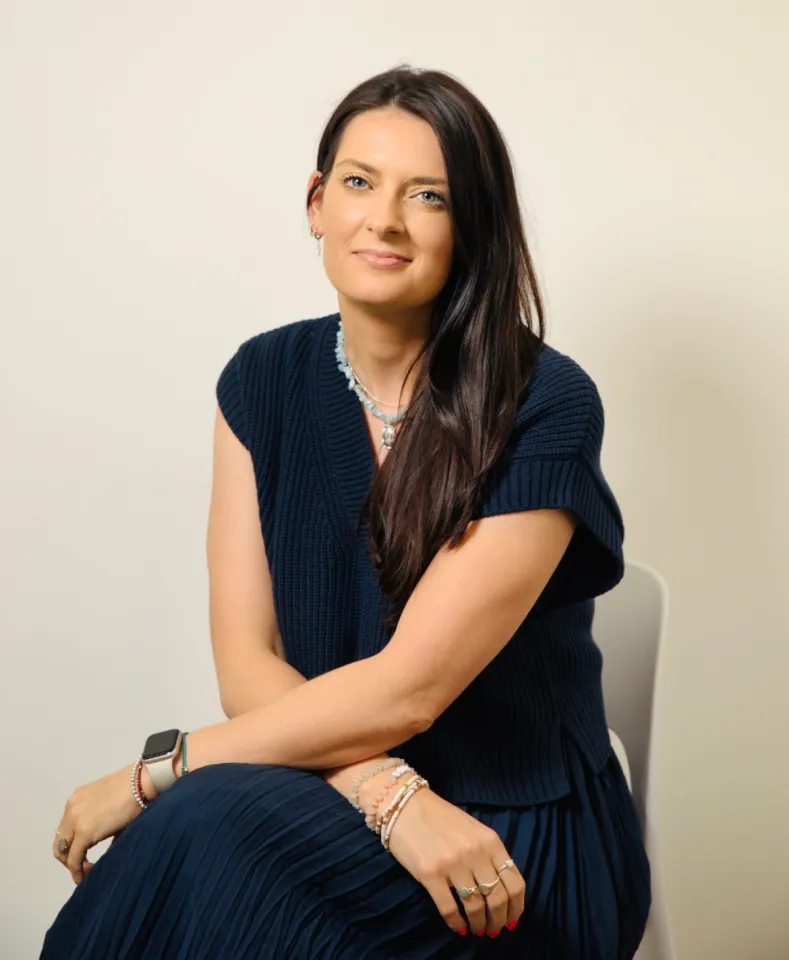Hearing From: Dominique Highfield, CFO at Bloom & Wild
.png)
After seeing Dominique speak at the Sifted Summit last month, I knew her story would be of interest to our readers. As part of our ongoing "Hearing From" series, I asked her how she got into finance, the value of storytelling at CFO level, and we unpicked the decision to choose between profit and growth...
______________
Let’s start big. How did you end up in finance?

My dad was my Accounting teacher at school for my A Levels, and it feels like I’ve been on a mission to make him proud ever since!
I trained in audit at PwC, then moved pretty quickly into commercial finance. I learned the ropes at Sainsbury’s and Amazon, then joined Pentland Brands (the family company behind Speedo, Berghaus and Ellesse) where I moved onto the exec team and broadened beyond pure finance.
After that I went to Purplebricks as CFO. My first 100 days were… eventful. We issued a profit warning, put the business up for sale, changed ownership and narrowly avoided administration. It was ten years of listed-company experience in a few months.
I learned a huge amount, but I also realised I wanted to be somewhere that had solid growth, profit and cash generation.
A recruiter asked me (over a very good breakfast) “What’s your favourite business right now?” I said, “Bloom & Wild.” He said, “Funny you should say that, they’re hiring their first CFO.”
A few meetings later, here I am. If you’d told me ten years ago I’d be CFO of a brand I love, I’d have laughed. That’s the power of a good network - and a good breakfast!
The CFO role feels very different today, what’s changed?
The “grey suit” stereotype is fading. The CFO is now a real partner to the CEO and often looks after more than finance; ESG, legal, sometimes tech. The technical stuff is still table stakes, but the job leans much more into leadership, decision‑making and, honestly, storytelling.
It’s not just “revenue up, costs down.” It’s “what does this mean, and why should anyone care?” Storytelling is a huge part of my role as a CFO and what many of us in the industry are doing now.
Are CFOs actually trained for that, or are you making it up as you go?
A bit of both I think. I’ve learned by experimenting, and working with a great coach who has encouraged me to experiment and try new things (where and when we can!).
Through that I’ve found a style that works for me when it comes to storytelling. And being honest, the other big ‘unlock’ is leaders who put you in the room and give you space to learn.
How do you use that storytelling to build trust and influence?
Start with the why. I rarely ask for something without explaining why it matters and what will change if we do it. People will come with you if they understand the point, not just the task.
And I’m also really keen on building relationships that are more than just transactional. You can’t only show up when there’s a problem, you need to invest time in understanding people and their priorities and goals.
Take the time to learn how people like to work and change your approach if it’s not landing. Influence isn’t just banging the same drum all the time regardless of whether people are listening. You have to convince them of your point of view, and they won’t do that unless they’re confident you understand theirs as well.
You talk about leading with kindness. How do you square that with making hard calls?
To me, these things aren’t opposites. The tough call sits in the decision; but the kindness is in the delivery. Be thoughtful about timing. Listen properly. Watch your language. I once heard a redundancy round described as “trimming the fat.” If you’re the person affected, that’s horrible. You can run a tough process with empathy and help people leave with dignity and confidence for what’s next.
With that in mind, and the current economy today, do you think leadership calls are genuinely harder now, or just different?
Every era has its “hard.” We talk about AI now; previous leaders rode the internet wave, and far bigger geopolitical shocks. Today is demanding, yes, but we also have incredible information and tools. I’m not sure it’s harder; it’s faster and different. That asks for open‑mindedness, humility and lots of questions.
What does great finance leadership look like right now?
Three things:
- Be the CEO’s partner on strategy and value creation.
- Be present in the business, not just with investors, close to trading, BAU and performance culture.
- Stay curious about tech. We’re not the first leaders to face a tech shift, but this one moves quickly. Keep learning and be humble as you go.
What’s the big knot you’re working on at the moment with Bloom & Wild?
The classic tension: push harder on profit, or push harder on growth. We’re profitable, cash‑generative and growing well. Deciding which direction we prioritise shapes the next five to ten years, and the story we tell our teams and shareholders. It’s a nice problem to have, but still a big call.
And when it comes to AI, how much is it changing your world?
Expectations have gone up. Mine, the CEO’s, investors’. We’re early in finance, though the wider business already uses AI across tech, marketing and customer service. My approach is partner‑led: I’m working with specialist third parties (often startups) to co‑develop solutions to real problems rather than building in‑house. It’s symbiotic: we get solutions; they get products they can take to market. Plus, we’re rolling out simpler tools that make the team faster day to day.
I’ve seen you speak at the recent Sifted summit, and it’s clear you’re comfortable on stage. Any advice for newer speakers?
My top three pieces of advice would be:
- Anchor to a few stories you can tell in your sleep, moments you can always come back to and help illustrate your points well.
- Remember the audience wants you to succeed. Relax and help them relax.
- Plan with my favourite lens: Do - Feel - Know.
Before a talk or a board deck, I jot down: What do I want people to do after this? How should they feel? What should they know? I build to that (and even check slide by slide). It sharpens the message and helps set tone. Sometimes you want comfort; sometimes you need urgency.
What’s the best career advice you have, or have been given?
I’ll start with my favourite advice to give and what I live by. I have a sign at home: “Work hard and be nice to people.” It’s basic, but I truly believe it underpins my success today so I swear by it.
Two more I love:
- Bank your trophies. Keep a list or slide of wins. Senior jobs don’t come with daily gold stars; when it’s tough, you can look at the (metaphorical) cabinet and remind yourself of your value.
- Optimise for your story, not your title. Don’t chase the next grade for its own sake. Ask, “What does this add to my CV? What story does it let me tell?” When I stopped obsessing over the next rung of the ladder and focused on great projects, I was just an overall better person to work with.
Any final thoughts?
I see a lot of value in being the person people want on their team. That doesn’t mean being a pushover, or too ‘nice’, but it’s about being reliable, open, decent. Able to have a laugh which is honestly essential at work! It’s funny how much of a role that plays in your career development.



